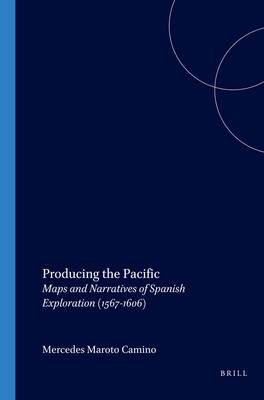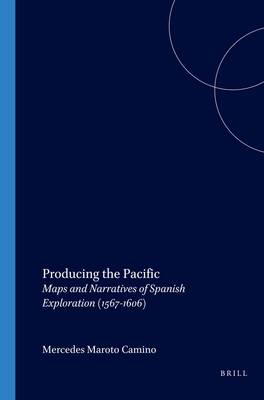
- Afhalen na 1 uur in een winkel met voorraad
- Gratis thuislevering in België vanaf € 30
- Ruim aanbod met 7 miljoen producten
- Afhalen na 1 uur in een winkel met voorraad
- Gratis thuislevering in België vanaf € 30
- Ruim aanbod met 7 miljoen producten
Zoeken
€ 103,95
+ 207 punten
Omschrijving
Producing the Pacific offers the reader an interdisciplinary reading of the maps, narratives and rituals related to the three Spanish voyages to the South Pacific that took place between 1567 and 1606. These journeys were led by Álvaro de Mendaña, Pedro Fernández de Quirós and Isabel Barreto, the first woman ever to become admiral of and command a fleet.
Mercedes Maroto Camino presents a cultural analysis of these journeys and takes issue with some established notions about the value of the past and the way it is always rewritten from the perspective of the present. She highlights the social, political and cultural environment in which maps and narratives circulate, suggesting that their significance is always subject to negotiation and transformation. The tapestry created by the interpretation of maps, narratives and rituals affords a view not only of the minds of the first men and women who traversed the Pacific but also of how they saw the ocean, its islands and their peoples. Producing the Pacific should, therefore, be of relevance to those interested in history, voyages, colonialism, cartography, anthropology and cultural studies.
The study of these cultural products contributes to an interpretive history of colonialism at the same time that it challenges the beliefs and assumptions that underscore our understanding of that history.
Mercedes Maroto Camino presents a cultural analysis of these journeys and takes issue with some established notions about the value of the past and the way it is always rewritten from the perspective of the present. She highlights the social, political and cultural environment in which maps and narratives circulate, suggesting that their significance is always subject to negotiation and transformation. The tapestry created by the interpretation of maps, narratives and rituals affords a view not only of the minds of the first men and women who traversed the Pacific but also of how they saw the ocean, its islands and their peoples. Producing the Pacific should, therefore, be of relevance to those interested in history, voyages, colonialism, cartography, anthropology and cultural studies.
The study of these cultural products contributes to an interpretive history of colonialism at the same time that it challenges the beliefs and assumptions that underscore our understanding of that history.
Specificaties
Betrokkenen
- Auteur(s):
- Uitgeverij:
Inhoud
- Aantal bladzijden:
- 144
- Taal:
- Engels
- Reeks:
- Reeksnummer:
- nr. 18
Eigenschappen
- Productcode (EAN):
- 9789042019942
- Verschijningsdatum:
- 1/01/2005
- Uitvoering:
- Paperback
- Formaat:
- Trade paperback (VS)
- Afmetingen:
- 150 mm x 220 mm
- Gewicht:
- 317 g

Alleen bij Standaard Boekhandel
+ 207 punten op je klantenkaart van Standaard Boekhandel
Beoordelingen
We publiceren alleen reviews die voldoen aan de voorwaarden voor reviews. Bekijk onze voorwaarden voor reviews.









